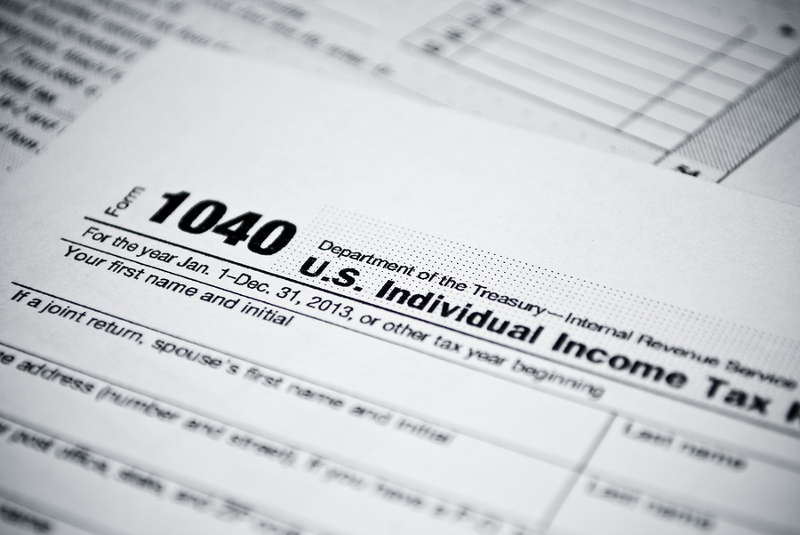It makes good financial sense for married couples to file a joint tax return, because the IRS grants significant exemption benefits for spouses who file together. In fact, in many instances spouses receive refund checks from the federal government rather than owing any additional taxes. However, while filing jointly can open the door to tax benefits for certain couples, the process is not without its potential pitfalls and drawbacks.
In particular, filing jointly makes the couple jointly liable for any taxes which are owed, including any interest and penalties which arise at or after the time of filing should either spouse be selected for an IRS audit. This liability persists even if the couple divorces, and no divorce decree can sever that responsibility. If an audit uncovers tax fraud, tax evasion, or other tax crimes, both spouses are considered liable.
However, if you had no knowledge of your spouse’s financial activities, you may be able to qualify for “innocent spouse relief,” or protection against liability incurred during your marriage, including criminal tax liability and legal issues stemming from unfiled tax returns. Tax lawyer Robert Hoffman can help you resolve marital tax issues, reduce your financial liabilities, and most importantly, comply with the law. To set up a free and confidential consultation, call Robert Hoffman today at (800) 897-3915.

What is Innocent Spouse Relief? Do You Qualify?
Innocent spouse relief is applicable to the additional tax you would otherwise owe if your current or former spouse:
- Failed to report their income by filing a tax return.
- Reported their income inaccurately.
- Claimed any improper credits or deductions.
However, this relief is not available to each and every taxpayer. You must meet all of the following eligibility criteria in order to qualify:
- First, you must have filed a joint return with an understatement of tax (i.e. deficiency). This deficiency must stem directly from your spouse’s inaccurate item, including incorrectly reported credits and deductions, in addition to any income which was not reported on your joint return.
- Then, you must be able to demonstrate that when you signed the joint return, you neither knew nor had reason to know that there was an inaccuracy or misstatement. In plain terms, you must have been completely unaware of the tax issue in question.
- Finally, it must be deemed unfair and unreasonable to hold you accountable for the error, taking into account all surrounding facts and circumstances, which of course will vary significantly from one couple to the next.
Separation of Liability Relief
There are three forms tax relief available to qualified spouses. The second type is known as a separation of liability relief.
This form of relief allocates or distributes any additional taxes owed from you and your spouse’s joint return due to failing to properly report one or more items. Essentially, the IRS carves up taxes owed due to the error between yourself and your spouse, so that neither person is legally responsible for paying the full amount.
However, qualifying for this type of relief demands that you meet very specific criteria. The IRS requires you to meet at least one of the following qualifications when you apply for separation of liability relief:
- You are either legally separated or divorced from your spouse.
- Your spouse has passed away.
- You have not lived in the same household as your spouse at any time during the yearlong period ending on the date you request relief.
Be advised that you will not qualify for this type of relief if you knew about the incorrect item at the time you signed the joint return.

Equitable Relief
If you are ineligible for the other two forms of relief, you may still qualify for a third option known as “equitable relief.” In order to qualify for equitable relief, you must establish that, in the context of all the relevant facts and circumstances, it would be unfair for the IRS to hold you liable for the tax error. Attorney Robert Hoffman can help you understand which form of relief is most appropriate for your unique financial situation. Robert will guard your legal rights and represent your best interests throughout the process of negotiating with the IRS.
Divorce and Community Property Laws in California
In some cases, the IRS will determine an allocation of tax which does not align with the rulings of the judge who originally dissolved the marriage. This can cause many problems when it comes to determining how to best approach the issue of repayment — and because federal law preempts state law, the IRS is not bound by the judge’s original decision.
Representation from an experienced Los Angeles tax audit lawyer is absolutely critical in light of the legal and financial confusion which can be caused by disparities between federal and state tax issues, particularly because California is a community property state. Under the California Family Code at Cal. Fam. Code §760, all property acquired during a marriage, while residing in California, is considered to be community property. In fact, the IRS regularly uses California community property law to collect against divorced taxpayers, with some notable examples including United States v. Stolle, 2000-1 U.S. T.C. ¶50, 329 (C.D. Cal. 2000) and Hegg v. IRS, 28 P. 3d 1004 (Idaho 2001).
Even if the IRS accepts your Request for Innocent Spouse Relief (Form 8857) or similar initiatives, agents may still attempt to seize any community property which was acquired during the marriage in order to satisfy your tax liabilities. Moreover, even if a divorce court has already divided up property, under IRC §6321 the IRS can still execute a federal tax lien.
Reach Out To an Experienced Tax Lawyer
For all of these reasons, it’s extremely important to consult with a licensed legal representative who can help you explore your options for maximum protection and relief from financial liability. To set up a free and completely confidential case evaluation, call the law offices of tax attorney Robert Hoffman at (800) 897-3915 today.

